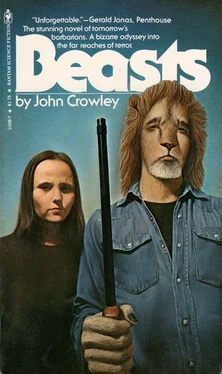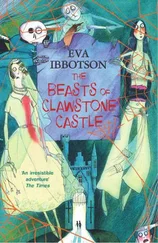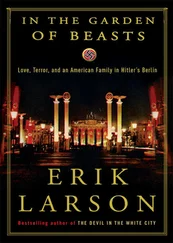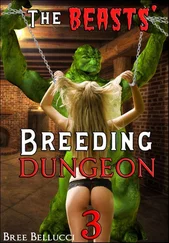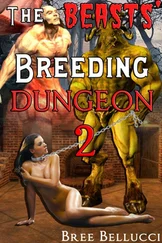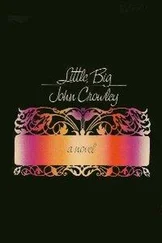“…has not revealed the identity of its witness, though he is believed to have been a high official in the Gregorius government. USE says facts revealed in the hearings will shed dramatic new light on the assassination of two years ago....” He spoke with such a clipped, false intonation that she could barely understand him.
Someone stepped in front of her then; and another, coatless — he must work here, she thought — came to stand next to her. “This ain’t a the-ayter,” he said.
“What?”
The person in front of her stepped away. On the screen was an image that made her heart leap. Painter stood in front of his tent, his old shotgun in his hands, He looked at her — or at Meric, rather — calm, puzzled, faintly amused.
The store employee put his hand on Caddie’s shoulder. “You ain’t buyin’,” he said. “Go home and watch it.”
She pulled away from him, desperate to hear. The guard at the door glanced over, and proceeded toward her ponderously.
She heard the clipped, brisk voice say: “Government channels are silent.” And Painter was replaced by a smiling woman standing next to a television, which showed the same woman and the same television, which showed her again.
The monument she found at last stood at the end of an oblong pool, empty now and a receptacle for the litter of those camped on the sward of brown grass around it. For the height of a man the monument was marked with slogans, most of them so covered with the other slogans as to be unreadable. It rose above these, though, to a chaste height. When Caddie looked up at it it seemed to be in the act of tumbling on her.
She went carefully around the perimeter of the park again and again, slowly, without much hope. Reynard between those men had obviously been a prisoner. How could he meet her here if he wasn’t free? She studied the knots of people gathered around fires lit in corroded steel drums, looking for his small face, sure she wouldn’t see it.
Night made it certain. She was trying to decide which of the fires she would approach, how she could buy food, when a bearded man, smiling, put a paper into her hand, WHERE IS HE NOW? the paper shouted, and beneath this was a grotesque picture of what might be a leo. Startled, she looked up. The man reminded her of Meric, despite the beard, despite the sunken chest and long neck: something gentle and self-effacing in his eyes and manner. She tried to read the paper, but could only pick out words in the last light: civil rights, nature, leo, crimes, USE, freedom, Sten Gregorius.
He must have seen the look of wonderment on her face, because he turned back to her after handing out more of the sheets. “Here,” he said, digging into a pocket, “wear a button.” He wore one like the one he gave her: the cartoon of the leo, and under it the words BORN FREE.
She didn’t know how any of this had come about, but this man must be a friend, She wanted desperately to tell him, to ask him for help; but she didn’t dare. She only looked at him, and at the button. He turned to go. She said: “Will you be here tomorrow?”
“Here or over there,” he said, pointing to where a pillared shrine was lit garishly by spotlights. “Every day. If I’m not in jail.” He made a sudden, aggressive gesture with upraised fist, but his inoffensive face still smiled. She let him go, with a sinking heart.
She was not alone, There were others who knew about Painter. Many others. She didn’t know if that was good or bad. She slipped in among a silent crowd around a fire at the base of the monument, the strange button clutched in her hand like a token, and rested her back against the stone, Her last meal had been hours ago, but she hardly noticed that she was hungry; hunger had come, over the months, to seem her natural state.
“They’ll bring him out in a moment,” Barron said, “Yes. There, There he is.”
The room they stood in was a consulting room of what had once been a public mental hospital meant for the dangerous insane. It was empty now, except for its single prisoner or patient; he had been installed here because no one could think of anywhere else to put him: no other cage.
The window of the consulting room looked out on the exercise yard, a high box of blackened brick, featureless. The single rusted steel door that led into the yard opened. Nothing could be seen within. Then the leo came out.
Even at this distance, and even though he was draped in an old army greatcoat, Reynard could see that he was thin and damaged. He walked aimlessly for a moment, taking small steps. He seemed constricted; then Reynard saw that his wrists were shackled. He wondered briefly if they had had to smith special shackles for those wrists. Painter went to the one corner of the blind court where thin sunlight fell in a long diagonal, and sat, lowering himself carefully to the ground. He rested his back against the blank brick and looked out at nothing, unmoving. Now and again he moved his arms within the shackles, perhaps because they chafed, perhaps because from moment to moment he forgot they were on him.
“What have you done to him?” Reynard asked.
“His condition is his own fault,” Barron said quickly. “He won’t eat, he won’t respond to therapy.” He turned from the window. “As far as we can tell, he’s physically unimpaired. Just weak, Of course he makes difficulties when we try to examine him.”
“I think,” Reynard said, “your prisoner is dying.”
“Wrong. He has injections daily. Almost daily.” As though trying to draw Reynard with him away from the window, he went to the far end of the room and perched on a dusty metal desk. “And he’s not a prisoner. He’s a subject of the USE Hybrid Species Project research arm. Technically, an experimental subject.”
“Ah.”
“Anyway, you’ve seen him, Now can we begin? You understand,” he went on, “that I don’t have any governmental authority. I can’t make any legal deals.”
“Of course.”
“I can only act as a mediator.”
“I think it’ll do.”
“This shouldn’t enter into it,” Barron said, looking at his knuckles, “but you, you personally, have made enormous difficulties for the government. Just enormous. It would be completely within their rights just to seize you and try you, or…”
“Or toss me down there. I know that. I think that what I have to offer will outweigh any vengeful feelings.”
“Sten Gregorius.”
“Yes. Where he is now, who his people are, the evidence against them, everything.”
“We don’t have much reason to believe you know all of that.”
“My information regarding him” — he gestured toward the yard below the window — “was accurate enough.”
“It put us to a lot of trouble. Unnecessary trouble.”
“Well?”
“You might be merely planning to confuse us, tell lies….”
“I’ve voluntarily put myself in your hands this time,” Reynard said. “I’m helpless. I know that if I mislead you now, the full weight of your authority will fall on me, I’m sure also that you have, well, experimental methods of extracting truths. The research arm.”
“That’s an odious slander.”
“Is it?”
“We wouldn’t let you renege, that’s true enough,” said Barron testily.
“It’s all I meant.”
“And what you want in exchange. It doesn’t seem enough. Not for such a betrayal.”
Reynard turned to the window again and looked out. “Perhaps you feel more deeply about betrayal than I do.” Barron had to lean out over the desk now to catch his hoarse whisper. “The answer is that I’m at the end of my powers. I’ve eluded your government so far because of a large fortune I managed to assemble working for Gregorius. That’s gone now. I’m old, not well, I’ve spent my life in motion, but I can’t run anymore. Eventually I’d be cornered, taken —” He paused, staring down into the yard. “Rather than have that happen, I’d prefer to trade the last of what I have for peace. For time to die peacefully in.” He turned to Barron, “Remember,” he said. “I’m not a man. I am the only, the first and last of me there will ever be. You know I’m sterile. I have no loyalties. Only advantages.”
Читать дальше
